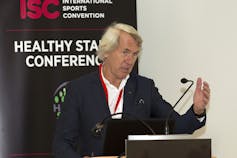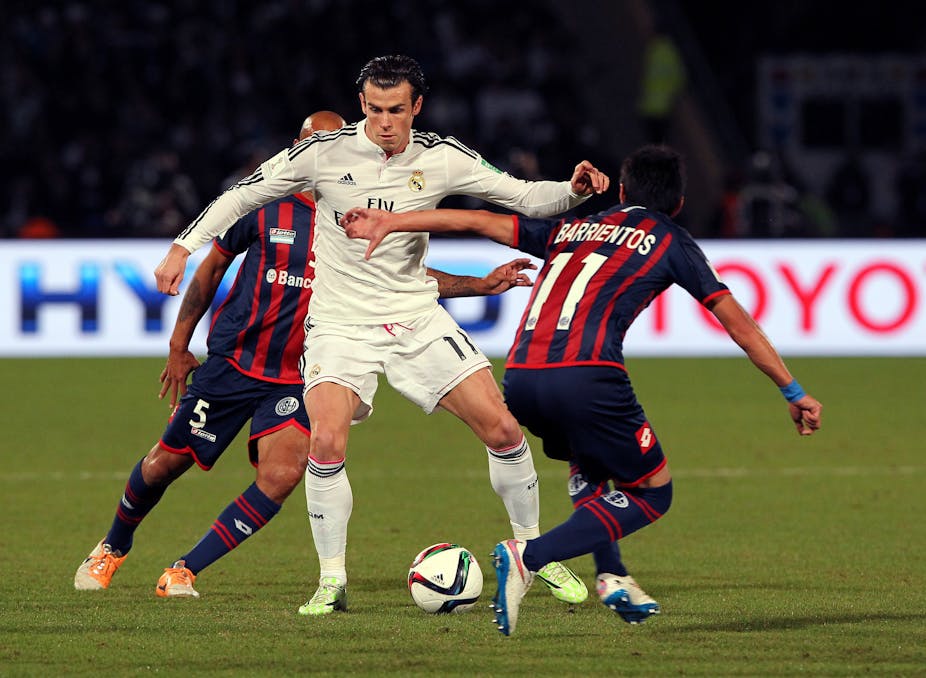Over the past 15 years football medicine research has developed significantly. The FIFA Medical Assessment and Research Centre has played a significant role in developing and collating information and addressing a variety of medical issues such as injury prevention, protecting players’ health and promoting health within communities and society as a whole.
The transparency of FIFA continues to be questioned and, more explicitly, it has been challenged as a corrupt organisation. It’s not a great time for FIFA. But it is doing some things right that also deserve a place in the spotlight.
Power to reach

FIFA has been playing its own role in response to the Ebola outbreak. FIFA’s chief medical officer, Jiri Dvorak, recently spoke at the European Healthy Stadia Conference in Geneva, Switzerland. He was keen to champion FIFA’s responsibility to society and to applaud the impressive (and wholeheartedly positive) response of professional football players to FIFA’s request to support its Ebola campaign.
The campaign – #togetherwecanbeatebola – was organised within two weeks. Players including Real Madrid’s Gareth Bale and Bayern Munich’s Philipp Lahm delivered simple messages such as: “avoid contact with wild animals and bats” and: “wash your hands and disinfect” to help tackle the Ebola outbreak.
FIFA’s quick response has helped translate key information, using the mass appeal and reach of the brand of football to a global audience through social media and a more traditional media campaign in the countries hardest hit by Ebola.
Reducing injury
FIFA is also looking to help the 265m people – and rising – who play football around the world. This includes a programme to reduce injury in amateur football.
Each year, almost 6m people need treatment in hospitals due to sporting activity. Importantly, “team ball sports” account for 40% of all hospital-related sport treatment – and football, which is responsible for 74% of that figure, makes up the majority of these hospital submissions.
FIFA’s medical research centre (F-Marc) has developed and tested a programme that has been trialed in different areas of organised football to prevent and reduce injury among those playing the sport at amateur and grassroots level. In one study, 5,000 coaches of the Swiss FA were educated on the new injury prevention programme and a result, injuries nationwide were reduced by 12%.
The programme includes a new warm-up protocol, which was also tested in female football in Norway and where there was a 30% reduction in injuries within a one-year period.
Still open to scrutiny
Critics have challenged whether mega-sized sporting events are able to deliver real health legacies, among often unscrupulous sponsor-driven decision making. Others feel FIFA could to do more, try harder and up its game. This includes calling on FIFA to focus on and invest in promoting health.
Amid all the bad news about corruption and scandal, it is worth taking a moment to offer some credit to FIFA for its valiant health promotion efforts but also to keep up scrutiny of FIFA and its social responsibility. We shouldn’t become complacent, especially given the amount of money invested in the beautiful game by sponsors. This is the ideal time to step-up our challenge and call on FIFA to realise further opportunities that use football to help promote health in communities around the world.

